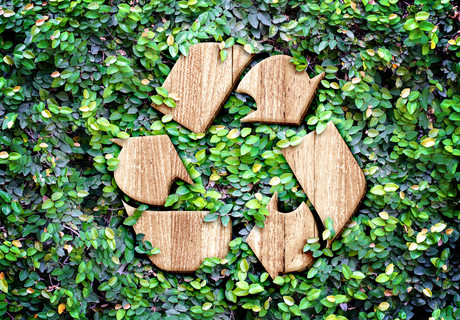When recycling makes cents

Eliminating separate waste streams can save on costs and improve recycling rates by 25%.
South Australians have high expectations that our environment will be sustained for future generations, and the state has consistently been a national leader in environmental management policy. So it’s no surprise that SA has achieved the highest per capita recycling rate nationally.
While the percentage of waste going to landfill has decreased, waste tonnage overall is growing with the economy and population. Recycling doesn’t change the amount of waste created. Instead, it minimises resources lost by diverting material from landfill and transforming it into a new material. Sounds good in theory, but two basic questions about recycling persist: is it really good for the environment and does it make economic sense?
Recycling is generally desirable, but it’s not automatically good and efficient and cheap. It takes a significant upfront capital investment to implement a state-of-the-art single-stream recycling program, and the success of the program depends on a real market for the recycled materials. It’s a total economic system.
We need to start to work together and recognise we need a new approach. Recently, some large corporations and small entrepreneurs have taken steps to resolve Australia’s recycling crisis. Some of the proposed solutions appear to be viable; however, on further investigation, it is clear that certain recycling solutions, no matter how well intentioned, are simply a marketing ploy based on impractical and unsustainable models.
Let’s talk about the poster child of waste and excessive consumption — the takeaway coffee cup. While grassroots movements call for an outright ban, governments consider placing a tax on their use and multinationals publicly commit funding to develop solutions, some companies have proposed bespoke recycling solutions that focus only on takeaway paper cups.
There are a number of potential limitations with this model. It’s estimated that a single truckload is capable of transporting 16 to 20 tonnes of cups (6 million cups). That equates to approximately 216 trucks loads per year to transport all the cups used in Australia. The waste will have to be transported, in some cases, long distances in order to get to the recycling facility. Transportation of waste results in cost overheads, fuel and associated carbon emissions and congestion on the roads.
One should question the wisdom of deploying fleets of large, fuel-hungry trucks that duplicate the routes already driven by garbage trucks to take one specific product to a reprocessing facility — located significant distances from the source of the waste — and require additional energy that contributes to the carbon footprint of the product.
Two of the three current cup recycling offerings being promoted as solutions require additional funding or subsidies in order to remain commercially viable.
The only practical, scalable and commercially viable solution to diverting cups from landfill with a positive environmental outcome is commercial composting. The technology to produce compostable cups is available to all cup manufacturers.
The benefits of using compostable packaging are obvious: convenience and an uncomplicated collection process that doesn’t attract hefty additional fees. It facilitates the diversion of organic waste from landfill, so there’s no need to separate out your food scraps and clean and sort different plastic items — simply dispose of all food scraps and compostable packaging into one bin. The recycling is done locally and there is strong demand for the end product — high-quality compost.
Eliminating the need to separate waste streams can improve recycling rates by up to 25%, according to research by the Solid and Hazardous Waste Education Center at the University of Wisconsin. Another benefit is efficiency — collection costs account for 50 to 60% of the cost to recycle material, which means efficiency in collections is crucial. Besides saving money, this increased efficiency — along with greater volumes of materials — ensures more waste is diverted from landfill.
In many parts of the country, the greatest barrier to widespread composting is the lack of composting facilities and organics collection and transportation infrastructure. There are businesses that are actively working to remove these barriers and expand the availability of composting throughout the country. For instance, BioPak’s Compost Service is now available across 1300 suburbs in nine major cities in Australia — diverting food scraps, organics and certified compostable packaging from landfill.
States and local councils are increasingly enacting organic waste recycling plans which prevent food waste and other organics from being disposed of in landfills and are often paired with public grant programs to spur investment in infrastructure. This helps promote the development of composting infrastructure while also incentivising food waste prevention and food recovery, and simultaneously creating new jobs and economic benefits.
Humanity needs to avoid the unnecessary use of plastics. Single-use food packaging that will be contaminated with food residue after use cannot be recycled in conventional facilities and should not be made from durable materials derived from fossil resources. Compostable packaging is the proven solution as we kick our plastic addiction and stem the flow of plastics into the ocean. Now is the time to adopt more sustainable packaging solutions and zero-waste targets that will subsequently drive economic growth.
How Australia can increase its circularity rate
An expert said the solution could lie in developing onshore processing plants and creating...
Scouts SA secures future of its recycling centres
Scouts SA has partnered with Container Deposit Scheme specialist Return-It to grow its Scout...
Mining waste provides strong boost to concrete construction
Flinders University researchers are turning mining waste into a tool for sustainable...








